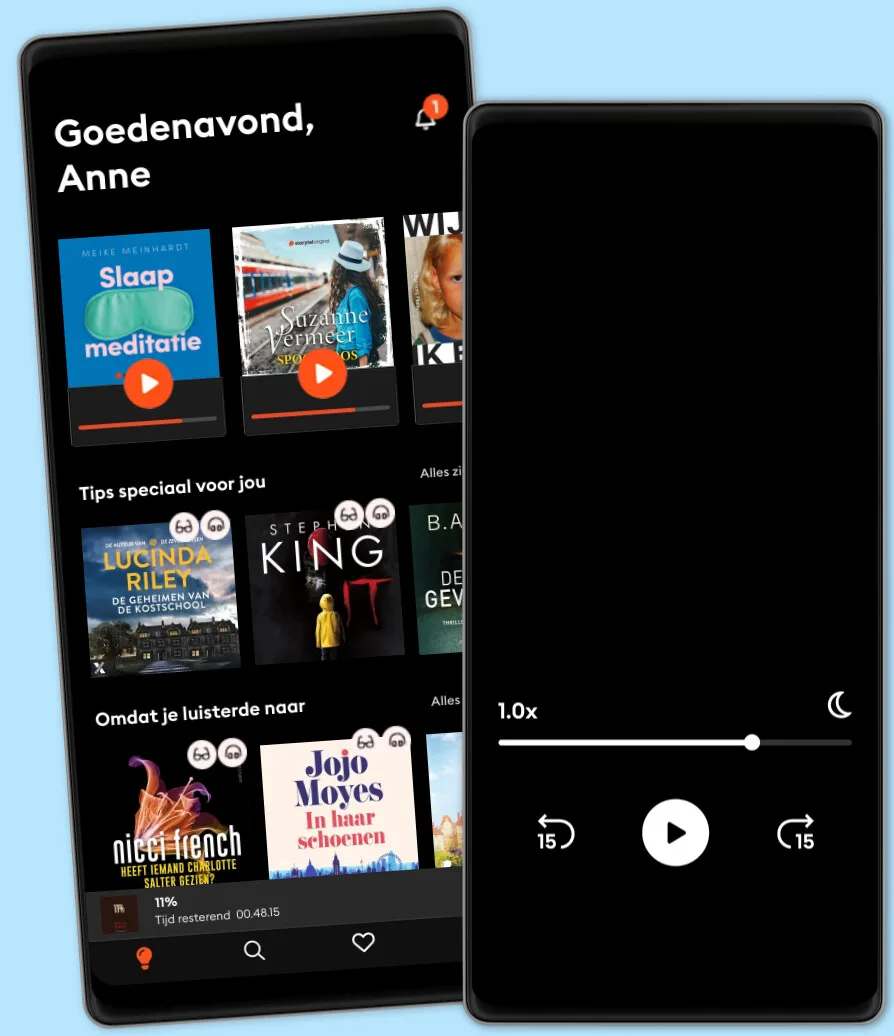Luister en lees nu 45 dagen gratis
Tijdelijke zomeractie: ontdek Storytel nu 45 dagen gratis. De aanbieding loopt t/m 3 augustus. Meer dan 1 miljoen luisterboeken en ebooks in één app.
- Switch makkelijk tussen luisteren en lezen
- Elke week honderden nieuwe verhalen
- Voor ieder een passend abonnement
- Opzeggen wanneer je maar wilt

The Digital Revolution: Transforming Society
- Door
- Met
- Uitgever
- Lengte
- 1uur 52min
- Taal
- Engels
- Format
- Categorie
Non-fictie
The origins of the digital revolution can be traced back to several key developments in technology, many of which were shaped by visionary thinkers and groundbreaking innovations. At the heart of this transformation was the invention of the computer, a device that would later evolve into the complex machines that now permeate every aspect of modern life. Early computing, which began in the 1930s and 1940s, was initially limited to large, cumbersome machines used by governments and research institutions. These machines, like the ENIAC and the UNIVAC, were monumental in size and expensive to maintain, but they laid the groundwork for the digital age that would follow.
The true revolution, however, began with the development of the microprocessor in the 1970s. This small, powerful component allowed computers to shrink in size, becoming affordable for individuals and small businesses. Companies like Intel and AMD played pivotal roles in creating chips that would power everything from personal computers to smartphones. The release of the first microprocessor-powered personal computers in the late 1970s and early 1980s, such as the Apple II and the IBM PC, marked the beginning of a new era in computing.
Parallel to the rise of personal computing was the development of the internet, which would fundamentally change how people connect with one another and access information. The internet's roots can be traced to the 1960s, when the U.S. Department of Defense developed ARPANET, a network designed to share information across computers in a decentralized manner. As the internet expanded during the 1990s, it transformed from a tool for academic and government use into a platform for businesses and individuals alike. The introduction of the World Wide Web, developed by Tim Berners-Lee in 1991, made the internet more accessible and user-friendly, leading to the explosion of online content and services that would define the digital age.
© 2025 Cammy Fetchens LLC (Luisterboek): 9798318300615
Publicatiedatum
Luisterboek: 15 april 2025
- Longeneeslijk: Hoe mijn kanker pure pech én puur geluk kon zijn Hanneke Mijnster
4.7
- Afl. 1 - Het dubbelleven van Rose Milou Deelen
3.2
- Marbella Linda van Rijn
3.8
- Als de wolven huilen Kristin Hannah
4.5
- De erfenis: Het is alles of niets. Laat het spel beginnen. Jennifer Lynn Barnes
4.3
- De verborgen belofte Lucinda Riley
4.4
- B&B Toscane - Verborgen gebreken Suzanne Vermeer
4
- De Camino Anya Niewierra
4.6
- B&B Toscane - Geheim verleden Suzanne Vermeer
3.8
- Slaapmeditatie: 30 minuten meditatie voor ontspanning en slaap Meike Meinhardt
4.2
- Ik was zijn bezit - waargebeurd verhaal Leone Milton
4.2
- De verloren erfgenaam: Het vervolg op De erfenis Jennifer Lynn Barnes
4.4
- Al het blauw van de hemel Mélissa Da Costa
4.8
- Onyx Storm Rebecca Yarros
4.3
- Ik ben vrij Lale Gül
4.7
Maak je keuze:
Voor ieder een passend abonnement
Kies het aantal uur en accounts dat bij jou past
Download verhalen voor offline toegang
Kids Mode - een veilige omgeving voor kinderen
Unlimited
Voor wie onbeperkt wil luisteren en lezen.
1 account
Onbeperkte toegang
Meer dan 1 miljoen luisterboeken en ebooks
Altijd opzegbaar
Premium
Voor wie zo nu en dan wil luisteren en lezen.
1 account
30 uur/30 dagen
Meer dan 1 miljoen luisterboeken en ebooks
Altijd opzegbaar
Flex
Voor wie Storytel wil proberen.
1 account
10 uur/30 dagen
Spaar ongebruikte uren op tot 50 uur
Meer dan 1 miljoen luisterboeken en ebooks
Altijd opzegbaar
Family
Voor wie verhalen met familie en vrienden wil delen.
2-3 accounts
Onbeperkte toegang
Meer dan 1 miljoen luisterboeken en ebooks
Altijd opzegbaar
2 accounts
€18.99 /30 dagenNederlands
Nederland